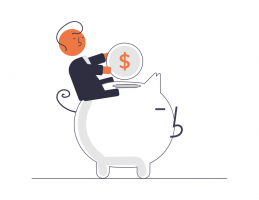HMRC have recently announced that thousands of people are failing to declare pension tax charges which could result in large tax bills.
This can lead to an unexpected and costly tax bill.
It is assumed that many people who put money into their pension each year are unaware of the declarations they need to make when saving in this way.
Majority of tax payers are able to contribute up to £40,000 tax-free every year. This limit applies to those earning up to £240,000.
For those earning over this amount, their allowance is reduced by £1 for every £2 they earn over this threshold.
The limit the allowance can reduce to is £4,000, when income reaches £312,000 and over.
For those contributing more that their allowance, it is a legal requirement to include this on their tax return where the amount will be subject to income tax. This is what HMRC believe is being omitted from returns.
They believe those with an allowance of less than the standard amount are the ones who need to be aware because pension providers are only obliged to alert those who exceed £40,000.
What is included in the annual allowance?
The annual allowance is made up of all your private pensions
It includes the total amount paid into a defined contribution scheme in a tax year by you or anyone else (for example if your employer makes contributions) as well as any increase in a defined benefit scheme in a tax year.
Can it be avoided?
In short, like any tax, no.
However, we are able to plan and ensure you save in the most tax efficient way.
In fact, you may be able to carry over any annual allowance you did not use from the previous three tax years.
The most important thing is that you are compliant and we can help you with this.
If you have any questions, contact one of our tax specialists on 01482888820

